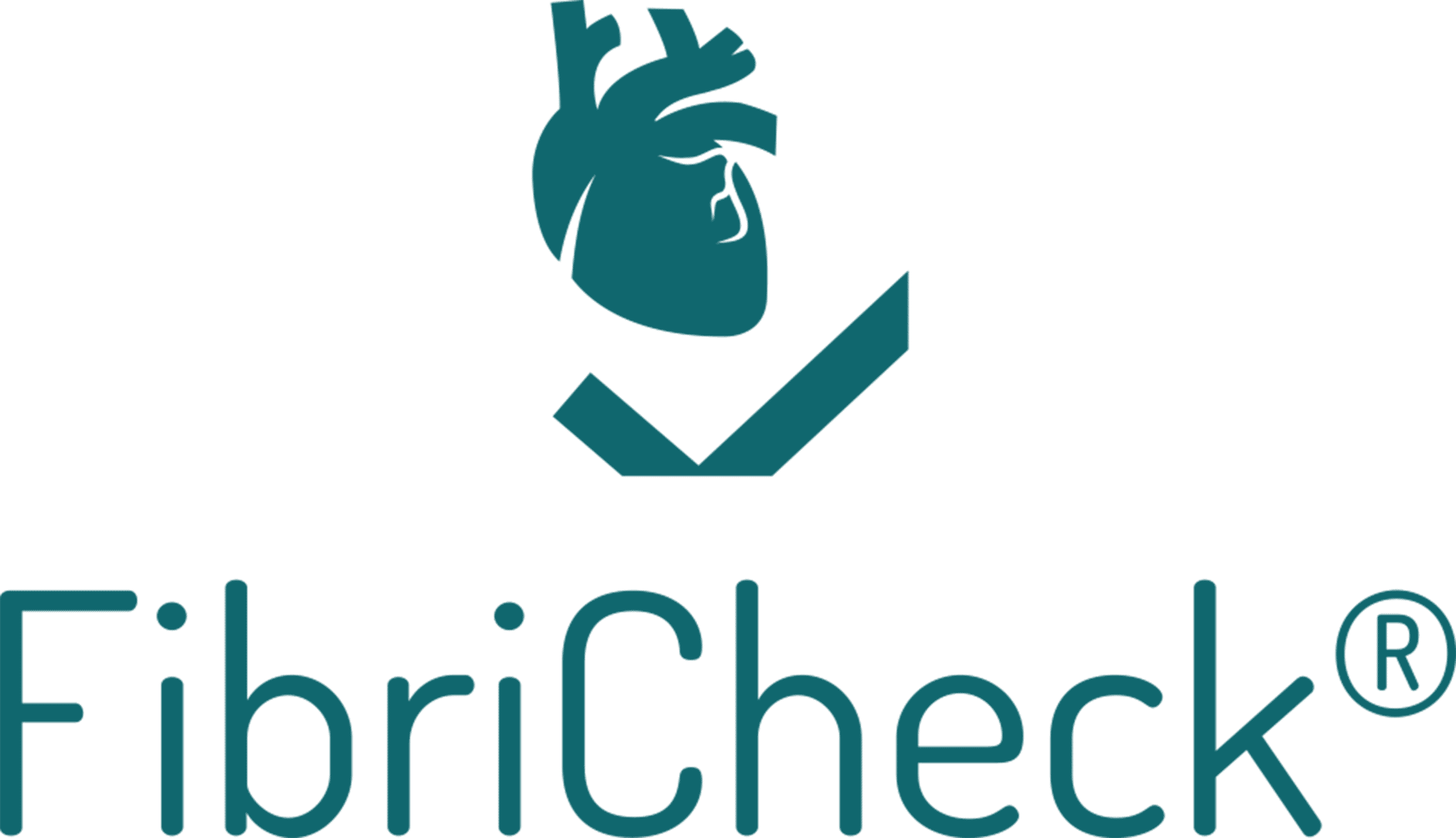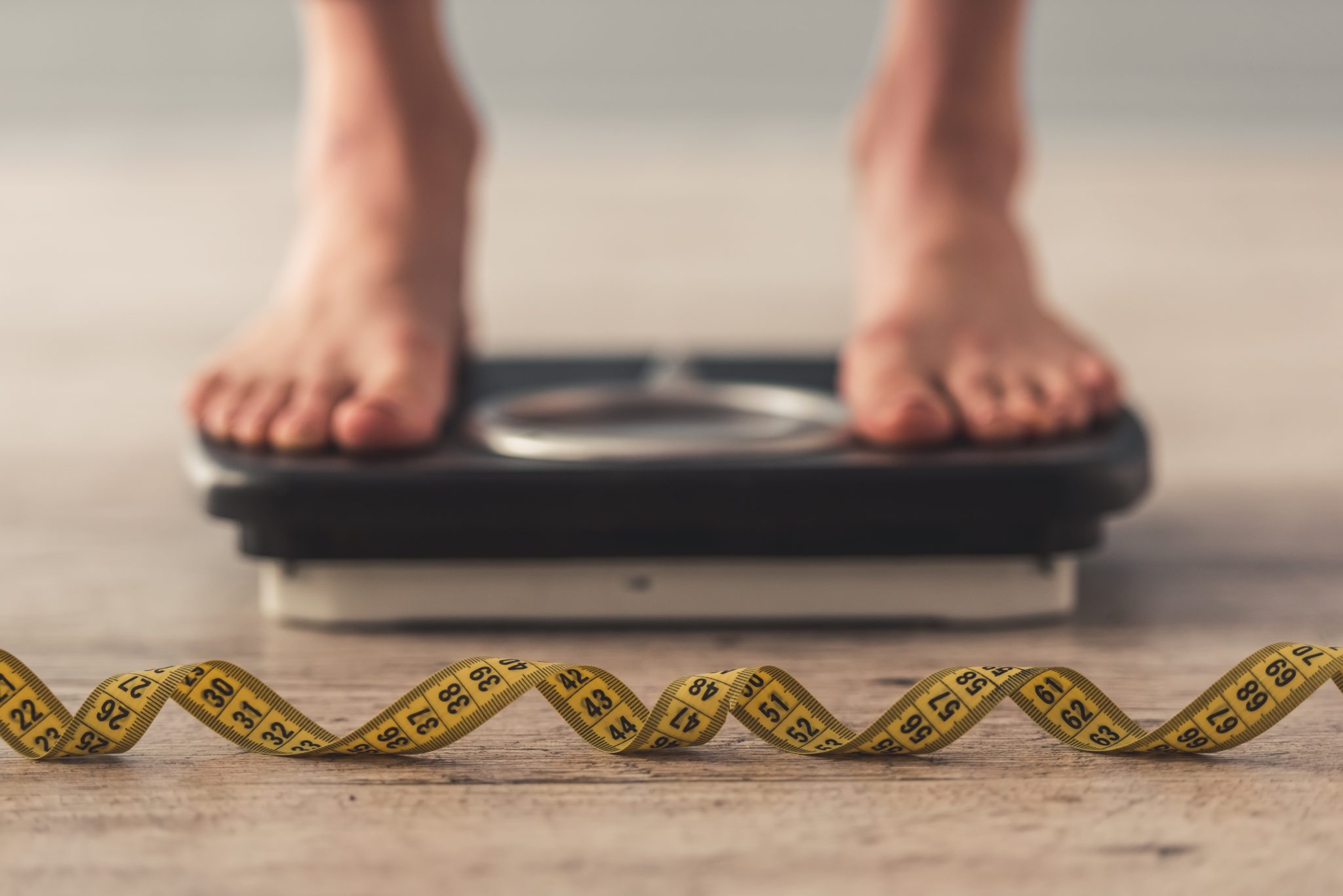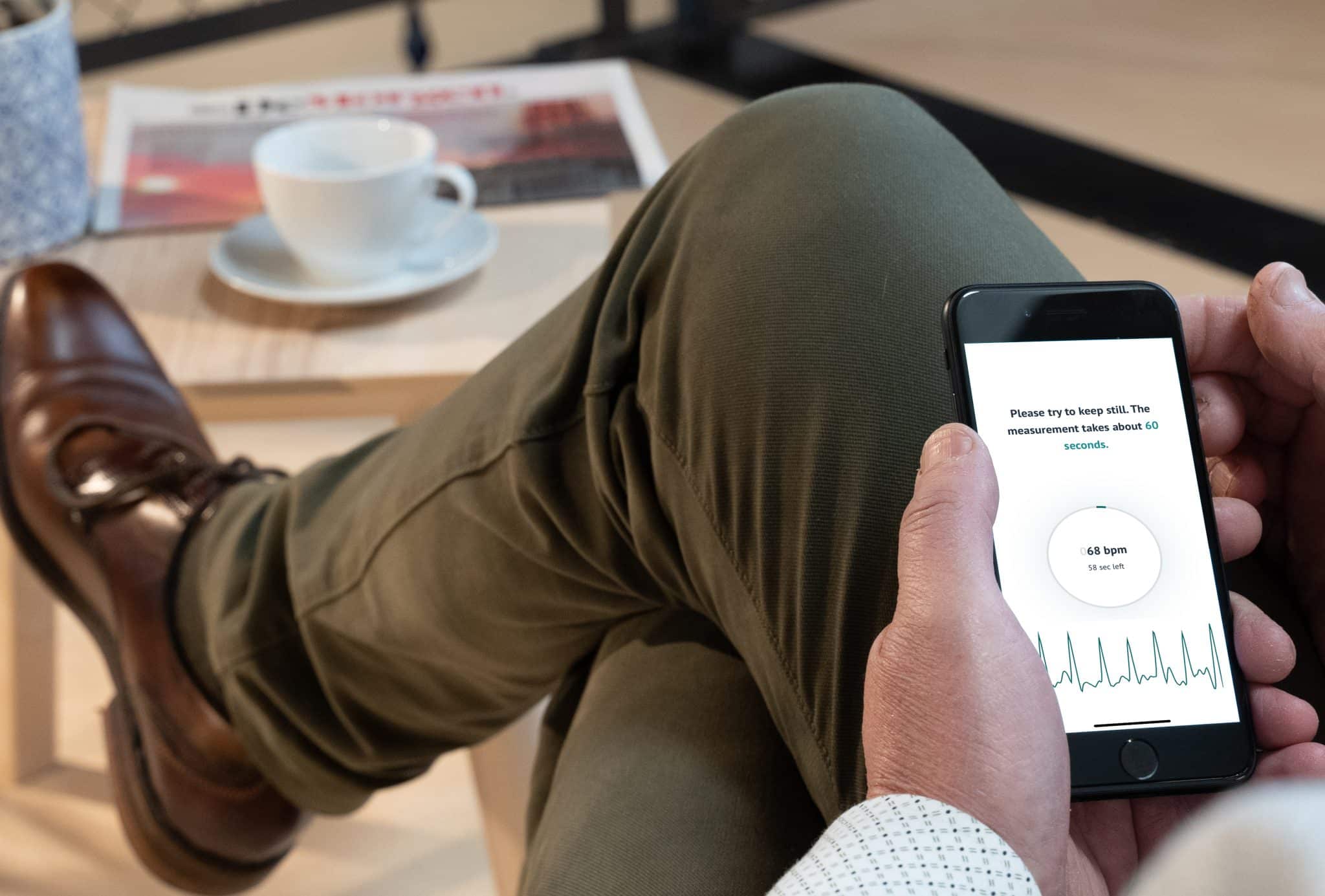The heart pumps 4 to 5 litres of blood around the body per minute. Thereby giving our tissues and cells the nutrients they require to enable them to work. This action also has the effect of removing waste from our body. The heart pumps at a particular rhythm, known as the heart rhythm. The heart rhythm is determined by electrical impulses that cause the heart to contract. In normal conditions, this produces a regular heart rhythm. When this is not the case, this may indicate a heart rhythm disorder.
Heart rhythm disorders can affect your quality of life, as they may cause unpleasant symptoms such as shortness of breath, fatigue and dizziness. In serious cases, they may also have life-threatening consequences, such as strokes, heart attacks and heart failure. What is also important to realise is that not everybody experiences symptoms in case of a heart rhythm disorder and that not all irregular heart rhythms are serious.
FibriCheck enables you to monitor various vital parameters, including your heart rhythm. This allows the detection of various cardiac arrhythmias. It is important to check your heart rhythm regularly, since heart rhythm disorders can occur at any time and not everyone with a heart rhythm disorder experiences symptoms.
If you do experience symptoms, you can use FibriCheck to help determine if they are due to a heart rhythm disorder.

Heart Rate Variability (HRV)
Heart rate variability refers to the time between each heartbeat. Increased heart rate variability means that your heart can quickly switch between a resting state and an active state. This is common in young and fit people and is not something to worry about.
Ectopic beats
Ectopic beats are also referred to as extrasystoles or extra heartbeats. These may happen as a result of an extra electrical impulse that should not normally occur. This kind of extra heartbeat can make you feel as though your heart is skipping a beat, is pulsating or briefly stops beating. This may occur in healthy people as well as in people who have a heart rhythm disorder.
Ectopic beats can occur isolated and are usually harmless. They may be the result of intense exercise, anxiety, stress, or excess caffeine or alcohol.
Ectopic beats can also occur frequently. These extra heartbeats can occur after every normal heartbeat (also known as bigeminy) or after every 2 normal heartbeats (also known as trigeminy). These extra heartbeats disrupt your heart rhythm and may indicate the development of a serious cardiac arrhythmia.
If our algorithm detects ectopic heartbeats in your case, we would recommend reporting this to your doctor when you next see him/her. Take your FibriCheck report to the consultation. This will instantly give your doctor an overview of your measurements and your symptoms.
Tachycardia and bradycardia
In the case of tachycardia your heartbeat is higher than normal. Tachycardia is usually caused by stress, exercise, fever, or the use of caffeine or certain medications. So it is completely normal to get tachycardia as a result of a FibriCheck measurement if you have been exercising just before your measurement. In other cases, it can also be caused by a cardiac arrhythmia.
When it comes to bradycardia, the reverse is seen to happen. In that case, your heartbeat is slower than normal. This may be normal in young adults and athletes, but in other cases bradycardia may be problematic, preventing sufficient oxygenated blood from being pumped around the body. Bradycardia often occurs due to problems with the heart’s conduction system, an underactive thyroid, damage to the heart after suffering a heart attack or the use of certain medicines.
FibriCheck detects tachycardia as well as bradycardia. If you are found to have either, we would advise you to report this to your doctor when you next see him/her. Take your FibriCheck report to the consultation. This will instantly give your doctor an overview of your measurements and your symptoms.
Atrial fibrillation
Atrial fibrillation is a serious heart rhythm disorder that causes the heart to suddenly start beating irregularly and faster than normal. This disorder is often encountered and may exist without you experiencing any symptoms. If you have atrial fibrillation, this increases your risk of stroke.

FibriCheck detects atrial fibrillation. As this heart rhythm disorder does not present continuously in some situations, it is important to carry out measurements on a regular basis to make sure this disorder is detected. We advise measuring your heart rhythm at least twice a day, and each time you experience symptoms.
If you have not been diagnosed with atrium fibrillation as such but this has been detected by FibriCheck, it is important that you contact your doctor as soon as possible and for you to measure your heart rhythm at least twice a day until the date of your appointment. This will give you more measurement results in your FibriCheck-report, which in turn gives your doctor a proper understanding of your heart rhythm and your symptoms.
Atrial flutter
An atrial flutter is also referred to as an auricular flutter. This is a heart rhythm disorder whereby the atrial chambers of the heart rhythm contract at a very quick pace, causing the heart rhythm to go into overdrive, beating at up to 150 times per minute. If you are found to have this heart rhythm disorder, this also increases your risk of having a stroke.
When your FibriCheck measurement indicates you may potentially be experiencing atrial flutter, the important thing is to contact your doctor without delay. It is advisable to continue measuring your heart rhythm at least twice a day until the date of your appointment. This will pad out your FibriCheck report with more measurement results, which in turn will give your doctor a clear insight into your heart rhythm and your symptoms.
After each FibriCheck measurement, you will be sent a helpful report, with further details about your heart rhythm. If our algorithm has detected a heart rhythm disorder, this report also contains extra information about this particular heart rhythm disorder, as well as advice on which course of action to take.
Created on April 23rd, 2021 at 07:22 am
Last updated on October 14th, 2024 at 10:15 am



